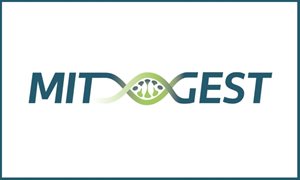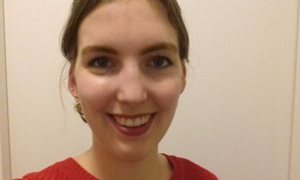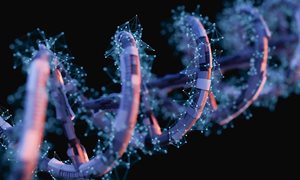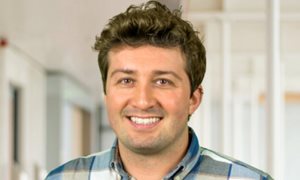
The number of de novo mutations (DNMs) in the human germline is correlated with parental age at conception, but this explains only part of the observed variation. Christian Gilissen, theme Metabolic diseases, and colleagues investigated whether there is a family-specific contribution to the number of DNMs in offspring. This is published in the Genome Research.
An analysis of DNMs in 111 dizygotic twin pairs did not identify a substantial family-specific contribution.
This result was corroborated by comparing DNMs of 1669 siblings to those of age-matched unrelated offspring following correction for parental age. In addition, by modeling DNM data from 1714 multi-offspring families they estimated that the family specific contribution explains approximately 5.2% of the variation in DNM number. Finally, they found no substantial difference between the observed number of DNMs and those predicted by a stochastic Poisson process.
They conclude that there is a small family-specific contribution to DNM number and that stochasticity explains a large proportion of variation in DNM counts.
Related news items

Hans Spelbrink is beneficiary of the MITGEST Doctoral Network which receives 2.6 million euros funding (PhD positions available)
27 September 2022EU has granted the new Doctoral Network “MITGEST” (Quality Control of the Mitochondrial Gene Expression System in Health and Disease), of which Radboudumc is one of the partners, with 2.6 million euros of funding under the Marie Sklodowska-Curie Actions.
go to page
Towards a better understanding of Leigh Syndrome pathology and intervention published in Brain
8 December 2021 Melissa van de Wal and colleagues recently published a comprehensive review in the journal Brain on how Ndufs4 knockout mouse models have been used to unravel the pathomechanism of Leigh Syndrome. go to page
New genetic defect links cell biology and protein glycosylation
10 November 2021 Peter Linders, Dirk Lefeber and Geert van den Bogaart together with international colleagues have recently reported on novel cell biological insights, by identifying a genetic disorder in syntaxin-5 which allowed to unravel a new mechanism regulating intracellular transportation. go to page
RIMLS awards call for nominations
19 October 2021 RIMLS awards several prizes to stimulate and honor our (young) researchers. Upcoming awards are Supervisor of the Year, Best Master Thesis, Best Publication, Best Image and more. Send your nominations now before 24 November 2021. go to page
Systematic analysis of short tandem repeats in 38,095 exomes provides an additional diagnostic yield
22 September 2021 Christian Gilissen and colleagues published in Genetics in Medicine about their work guiding the application of short tandem repeat analysis in clinical exome sequencing. go to page
